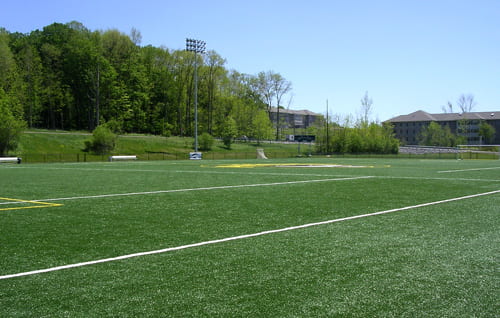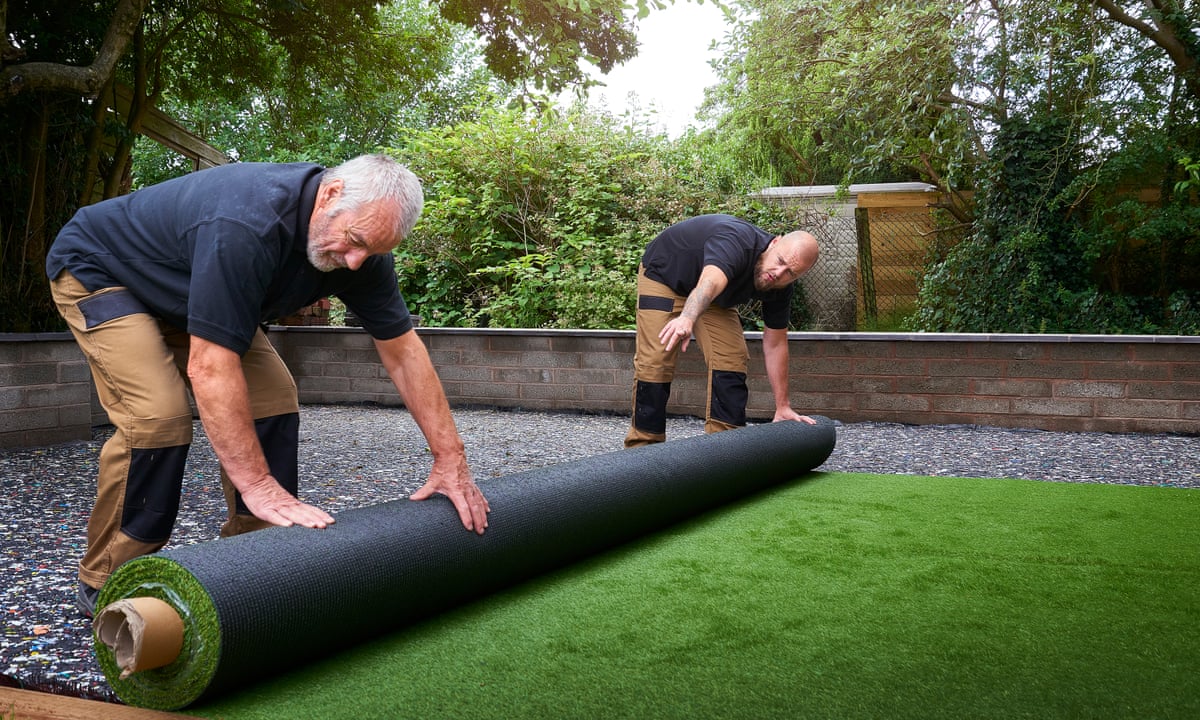Top Arizona Turf Suppliers Delivering a Lifelike Lawn Alternative
Top Arizona Turf Suppliers Delivering a Lifelike Lawn Alternative
Blog Article
Explore the Environmental Conveniences of Opting for Artificial Grass Solutions
The adoption of fabricated turf services provides an engaging possibility to address pressing ecological obstacles. By significantly decreasing water usage and lessening the application of hazardous chemicals, these alternatives not only advertise lasting landscape design yet likewise secure neighborhood ecological communities.
Water Conservation Perks
One of the most significant advantages of synthetic turf is its capacity to save water. In contrast, artificial lawn does not need watering, considerably decreasing the overall need for water sources.
By eliminating the need for regular watering, fabricated lawn adds to lasting landscape practices and assists minimize the ecological effect of extreme water usage. Moreover, the conservation of water prolongs to the decrease of drainage, which can bring about dirt erosion and waterway contamination.
In addition, the setup of synthetic grass allows municipalities and property owners to allot water resources extra effectively, concentrating on essential uses such as alcohol consumption water and farming. The change in the direction of synthetic lawn not just promotes accountable water use but likewise lines up with more comprehensive environmental goals targeted at protecting natural deposits.
As communities significantly focus on sustainability, the water conservation benefits of synthetic grass present an engaging instance for its fostering in industrial and residential landscape design projects.
Decreased Chemical Use
The transition to man-made lawn significantly reduces the dependence on chemical therapies commonly used in all-natural grass maintenance. Standard turf monitoring commonly involves the application of herbicides, pesticides, and plant foods to promote development and control bugs. These chemicals can present dangers to human health, local wild animals, and the atmosphere, adding to soil and water contamination.
In comparison, fabricated grass gets rid of the need for these harmful materials. When set up, it requires marginal upkeep, mainly containing normal cleaning and infrequent infill replenishment. This decrease in chemical usage not just benefits the prompt atmosphere but additionally adds to more comprehensive eco-friendly security. By minimizing the launch of synthetic substances into the community, artificial lawn advertises healthier dirt and water supply.
Moreover, the lack of chemical overflow connected with synthetic grass setups helps shield neighborhood rivers from air pollution, supporting water life and maintaining biodiversity. Phoenix turf companies. As communities progressively prioritize lasting techniques, choosing for fabricated turf provides a sensible service that straightens with environmental conservation objectives. Through this change, homeowner can take pleasure in lavish eco-friendly rooms without compromising eco-friendly health and wellness, leading the way for a much more sustainable future
Reduced Carbon Footprint

Moreover, the setup of synthetic grass can cause considerable water preservation. All-natural grass require considerable amounts of water for irrigation, which not only includes in the carbon impact related to water removal and treatment but also stress regional water sources. In comparison, synthetic grass requires very little upkeep, needing no watering, therefore considerably decreasing water usage and its connected power prices.
In addition, the longevity of synthetic grass adds to its reduced carbon effect. With a life-span of up to 15 years or more, the demand for frequent substitutes is diminished, resulting in less waste and lower energy consumption in production and dealing with conventional lawn options. Overall, synthetic lawn offers a lasting choice for ecologically mindful landscaping.
Habitat Conservation
Environment preservation is a vital consideration in the debate over landscape design choices, specifically when contrasting synthetic grass to natural grass. All-natural lawn yards typically require considerable maintenance, including using plant foods, herbicides, and pesticides, which can detrimentally affect local communities. These chemicals can seep into the dirt and waterways, hurting indigenous plants and animals and interrupting local environments.
In contrast, synthetic grass offers a chance to lower the environmental impact of landscaping. By going with artificial turf, homeowners can lessen the disruption of natural environments related to typical lawn care techniques. Synthetic lawn gets rid of the demand for damaging chemicals, thereby safeguarding neighboring wildlife and preserving the honesty of surrounding ecological communities. The setup of fabricated turf can lead to the conversion of former turf areas into even more biodiverse landscapes, such as pollinator yards or indigenous plant locations, which can support local wildlife.
Eventually, the shift to man-made grass not only saves water and minimizes upkeep initiatives yet additionally cultivates a more harmonious relationship between human activities and the natural environment, promoting environment preservation in the process.
Long-Term Sustainability
Long-term sustainability is a vital factor in evaluating the advantages of synthetic grass over typical yard yards. One of the most substantial advantages of artificial turf is its resilience; it can last up to 15-20 years with minimal upkeep, whereas all-natural yard calls for constant reseeding and substitute. This long life decreases the need for consistent sources, such as her explanation water, plant foods, and chemicals, which are important for preserving a healthy yard yard.
Additionally, synthetic grass adds to a reduction in carbon emissions related her response to grass care devices. Standard lawns commonly need gas-powered lawn mowers, trimmers, and blowers, every one of which add to air pollution. Turf installation phoenix az. In comparison, artificial grass eliminates the need for such tools, advertising a cleaner environment
In addition, the production of man-made lawn progressively makes use of recycled products, enhancing its sustainability profile. As suppliers adopt eco-friendly methods, the ecological impact of synthetic grass remains to reduce.

Final Thought
The adoption of synthetic grass services provides considerable ecological benefits, including considerable water preservation, minimized dependence on harmful chemicals, and a lower carbon footprint. In addition, synthetic grass aids in protecting natural habitats by reducing land disturbance and promoting lasting sustainability with making use of long lasting products. Collectively, these variables highlight the possibility of artificial grass to add positively to environmental wellness and offer a feasible choice to conventional landscape design techniques in a progressively resource-conscious world.
In contrast, fabricated turf does not require watering, significantly minimizing the total demand for water sources. By lessening the release of artificial substances into the ecological community, synthetic lawn promotes much healthier soil and water systems.
In addition, the setup of synthetic grass can result in substantial water preservation. In comparison, man-made lawn requires very little upkeep, needing no watering, therefore considerably lowering water usage and its linked energy costs.

Report this page